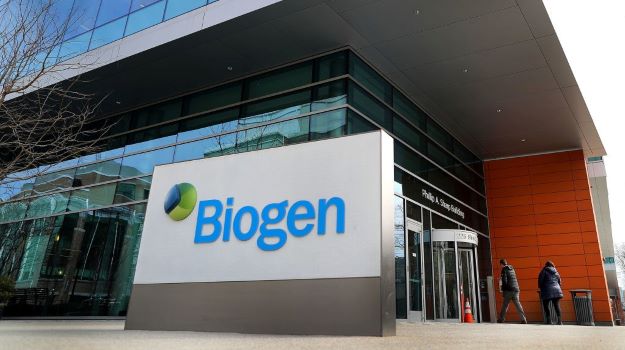Biogen to Cut 1,000 Jobs as Part of $1B Cost Savings Plan
July 27, 2023
Source: drugdu
 329
329

Pictured: Biogen/The Boston Globe via Getty, John Tlumacki
With full FDA approval and CMS coverage for Leqembi in hand, Biogen is ramping up its launch efforts for the Alzheimer’s drug and executing a massive cost reduction program. The biotech company announced second-quarter earnings and its new cost-savings plan on Tuesday.
The “Fit for Growth” program is expected to generate around $1 billion in operating expense savings by 2025, which includes a headcount reduction of approximately 1,000 jobs, or about 11% of Biogen’s workforce. Around $300 million will be reinvested into product launches and R&D programs for a net savings of $700 million.
The staff reduction will be completed by 2025. The company had more than 8,700 employees in 2022, according to Statista.
Biogen CFO Michael McDonnell told investors on Tuesday’s earnings call that a “substantial portion” of the $700 million in net operating expense savings are expected to come from cutting 1,000 jobs “which we expect to right-size the company with our business plan and enable us to return to sustainable growth.”
The biotech reported more than $2.4 billion in total revenue for the second quarter, a 5% drop from 2022’s earnings during the same period, beating expectations by $100 million.
Despite its 25% market share in multiple sclerosis, Biogen’s MS products were down 15% in revenue compared to the second quarter of last year, coming in at $1.2 billion. The company laid off an unspecified number of employees in April, suspected to be from the MS business as the head of the franchise left Biogen and 2022’s financial presentation alluded to its declining revenue business.
Biogen’s MS drug Tecfidera is facing the entrance of generics to the market. The EU granted extended market protection for the drug until February 2025. There is also more competition in the MS space, which will only increase with Roche, Merck KGaA, Sanofi and Novartis all in Phase III trials to bring new BTK inhibitors to approval for MS.
“While we will be making significant investments in our newly prioritized pipeline and new product launches, we will also need to invest less in other areas which are no longer growing. With these changes, I believe that Biogen will be better positioned to maximize its growth opportunities going forward,” CEO Christopher Viehbacher said in a statement.
Alzheimer’s disease revenue from Aduhelm and Leqembi equated to a headwind of $20 million, according to Viehbacher. He expects the line to continue to be in the negative for the year as commercialization expenses exceed initial revenue.
After the botched Aduhelm launch, Biogen and partner Eisai are determined to do better for Alzheimer’s drug Leqembi. While the companies have recently secured full FDA approval with Medicare coverage, Leqembi's challenges are far from over.
Viehbacher acknowledged on Tuesday’s earnings call that “there's an awful lot we still don't know” about Alzheimer’s and due to the subtleties of the disease “it's going to be quite interesting from a commercial point of view.”
In particular, the physician process for using Leqembi is quite complex with the PET scans, cognitive testing, infusions and follow-up MRIs needed for treatment. Viehbacher said the mechanics of seeing patients will change as a routine for assessing and treating with Leqembi develops in the doctors' offices.
The CEO pointed to the need for “smarter” product launches on the earnings call, highlighting a focus on high-value projects in R&D to give the opportunity to diversify into rare disease, immunology and psychiatry. The company will also be looking at ways of conducting clinical trials more efficiently.
Source: bioSpace.com
By editorRead more on
- The first subject has been dosed in the Phase I clinical trial of Yuandong Bio’s EP-0210 monoclonal antibody injection. February 10, 2026
- Clinical trial of recombinant herpes zoster ZFA01 adjuvant vaccine (CHO cells) approved February 10, 2026
- Heyu Pharmaceuticals’ FGFR4 inhibitor ipagoglottinib has received Fast Track designation from the FDA for the treatment of advanced HCC patients with FGF19 overexpression who have been treated with ICIs and mTKIs. February 10, 2026
- Sanofi’s “Rilzabrutinib” has been recognized as a Breakthrough Therapy in the United States and an Orphan Drug in Japan, and has applied for marketing approval in China. February 10, 2026
- Domestically developed blockbuster ADC approved for new indication February 10, 2026
your submission has already been received.
OK
Subscribe
Please enter a valid Email address!
Submit
The most relevant industry news & insight will be sent to you every two weeks.



